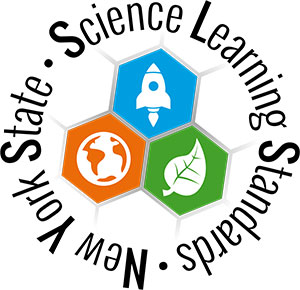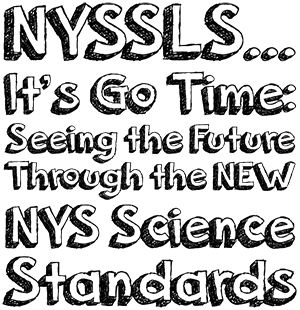
September 2016
News
In this video Dr. David Evans, Executive Director of NSTA explains how the NGSS are different from previous standards.
The upcoming New York State Science Learning Standards (NYSSLS), which were based on the NGSS, are grounded in students investigating and understanding phenomena. In this video Brain Reiser articulates the importance of starting with phenomena to drive classroom investigations. Phenomena give learning relevance and provide the hook for what we need science learning experience to explain.

The NYSSLS embody the principles articulated in the Framework for K-12 Science Education: Practices, Crosscutting Concepts, and Core Ideas (NRC, 2012), including the focus on students engaging in scientific and engineering practices. The identification of the eight practices was a thoughtful and explicit departure from the previous use of the phrase scientific inquiry. This article briefly describes the history of scientific inquiry and the misinterpretation of scientific inquiry in classroom practices.
Curriculum coherence is important. Coherence is a foundation of the Common Core State Standards for Mathematics. In this article, NCTM president Matt Larson discusses the dilemma of using openly available online instructional material, some of which are of high quality, while also maintaining curricular coherence. This article is important to also consider with respect to the upcoming NYSSLS that are built on learning progressions. Coherence in science curriculum is paramount to supporting the NYSSLS, as students will build and deepen understandings over lesson, units, and years.
The Framework for K-12 Science Education and the NGSS articulates that these standards are for all students. We need to ensure that all students have access to equitable science learning opportunities. The movement towards a conscious and purposeful focus on equitable science learning opportunities is parallel to trends in mathematics. Several mathematics professional organizations have joined together this year to focus on issues related to equity and access to mathematics education and have provided this plan of study, that includes some worthwhile resources to deepen our thinking.
Follow Us Online |
||||||
| OCM BOCES Instructional Support (IS) offers specialized E-Newsletters centered around our different departments. To view the choices or to sign up, visit our E-News Sign-up page. You may unsubscribe at any time. | Visit our Website |
|||||
